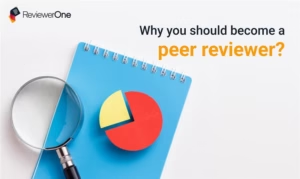Peer review has long been described as the bedrock of scholarly communication. Yet, the simple question of why researchers continue to volunteer their time for what is often invisible, uncompensated work remains fascinating. Recently, I found myself immersed in three very different explorations of reviewer motivation: a survey-based report from IOP Publishing and Publons, a scholarly article about the human–computer interaction (HCI) community in the Journal of the Association of for Information Science and Technology, and a lively ResearchGate community discussion thread that invited academics to reflect candidly on why they choose to peer review. Taken together, these sources revealed a few key factors that lead researchers to volunteer their expertise and time to perform peer reviews. These included altruism, community duty, recognition, reputation, and even frustration.
- Altruism and “giving back”
A consistent theme is the idea of service to the community. In the ResearchGate thread, respondents repeatedly emphasize reviewing as a moral obligation. You do it because someone did it for you. You simply pay it forward. The HCI study echoes this, showing that “giving back” and “encouraging quality research” rank among the most important general motivations for reviewers. Similarly, the IOP-Publons survey highlights researchers’ sense of upholding the integrity scholarly knowledge. This reinforces a picture of peer review as a social contract: reviewers participate because they believe scholarship cannot function otherwise. - Intellectual curiosity and staying current
Another equally strong motivator is intellectual engagement. Both the IOP-Publons survey and the HCI study find that reviewers are more likely to accept invitations when the manuscript aligns with their expertise or piques their interest. Reviewing offers a way to stay updated about the field. On ResearchGate, researchers also note that reviewing improves their own writing and exposes them to cutting-edge work. This underscores that peer review process is not only an altruistic service but also a form of professional development. - Recognition, reputation, and career building
Recognition is important, too. The IOP-Publons survey notes that early-career researchers especially value feedback or acknowledgment. The HCI study finds that career stage influences motivation: junior reviewers rate “preparing for higher roles” or “learning through reflection” more highly than seasoned academics. On ResearchGate, some participants view reviewing as a way to build their reputation or enhance their CV. Many also acknowledged that formal recognition is often limited. Recognition matters, but it rarely outweighs intellectual interest or community duty.
The ResearchGate conversation voices sharp critiques of a system where unpaid academic labor underpins a profitable publishing enterprise. The IOP-Publons survey reports that a quarter of respondents feel overwhelmed by too many review requests. The HCI study similarly identifies convenience factors such as time and manuscript quality as strong predictors of whether an invitation is accepted. Even the most altruistic reviewers struggle to deal with fatigue or poor-quality submissions.
Together, these insights highlight the fragility of peer reviewer motivation. At its core, peer review relies on scholars’ sense of reciprocity and curiosity. But sustaining this goodwill requires additional measures. For example, improved reviewer matching systems will help identify reviewers who are a strong match for manuscripts. Setting up robust systems for reviewer recognition can matter, especially for early-career researchers. Important practices like avoiding last-minute requests and filtering out poor-quality submissions can indicate that reviewers’ time is valued. Acknowledging the ethical concerns around publishing and seeking ways to help reviewers balance value and fairness could help reviewers feel supported and stay motivated.
Reading the IOP-Publons survey report, the HCI community study, and the ResearchGate thread left me with a greater appreciation of both the generosity and vulnerability of peer reviewers. Researchers review not for money, but for meaning, for the chance to give back, to stay sharp, and to help uphold the quality of scholarship. Recognizing what truly motivates reviewers will help publishers, editors, and institutions adapt their approach.
If these ideas resonate, join the conversation in the comments. What drives you to review, and what could make the experience better?








Leave a Comment